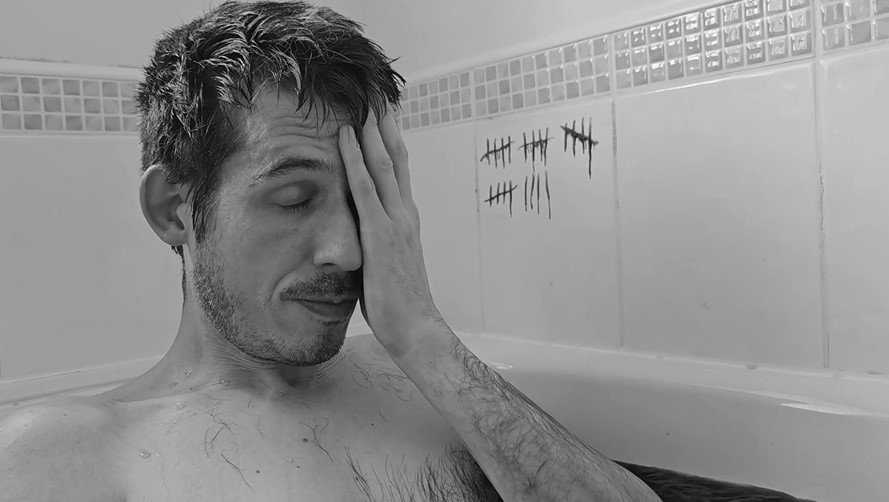‘Power Plant’ is a beautifully subtle short film that takes a mundane setting – an average bathroom – and turns it into a stage for existential rumination. Written and directed by Craig Ebbrell and Jack Turner of Warp House Films, this poignant drama quietly reflects on isolation and mental health, but with an artful touch that never feels preachy.
The film opens with static shots of a house interior, drawing us into the stillness. Eventually, we find our protagonist, played by Gav Collings, lounging in a bathtub he hasn’t left for days. The days are etched into the walls, like a prisoner’s tally, marking time spent in a stagnant rut. It’s a clever visual metaphor – his bathwater stagnant, much like his life. The use of black-and-white cinematography enhances this feeling of inertia, the lack of color symbolizing a world drained of vitality.
And then, enter the houseplant – a surprising, almost whimsical catalyst for change. Through subtitled dialogue (no spoken words here, a nice nod to silent film era classics), the plant becomes a sort of quirky therapist, nudging Collings’ character to recall moments of joy before his bath-time exile. But he’s not ready to face the truth. We’ve all been there – wrapped up in our metaphorical blankets, avoiding life’s hard questions.
Collings’ performance shines, embodying a man teetering on the brink but paradoxically finding comfort in his isolation. The narrative, while simple, is emotionally layered. It doesn’t dwell on why he’s stuck; instead, it focuses on the flickers of hope that start to surface.
‘Power Plant’ is ultimately a film about overcoming inertia, and the ending leaves you with a quiet sense of optimism. It’s symbolic, understated, and – despite its minimalistic approach – profoundly relatable. Ebbrell and Turner have crafted a solid short film, that deserves to be seen.


